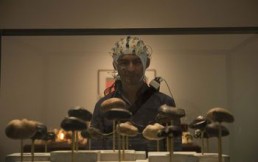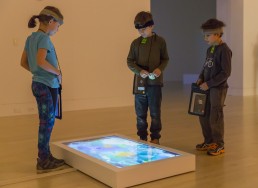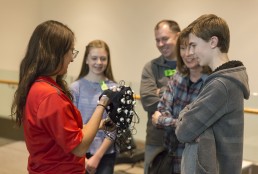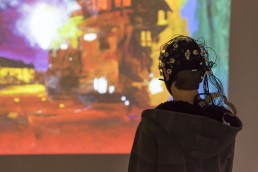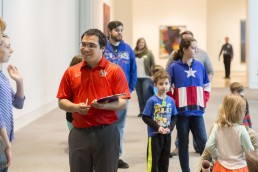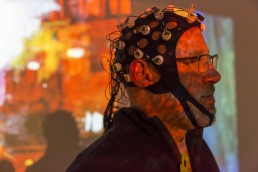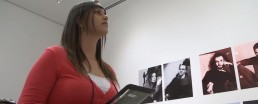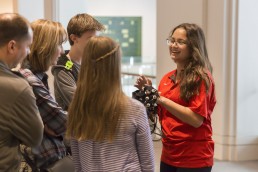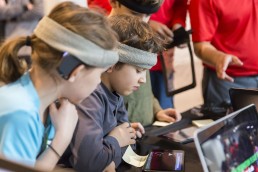Neuroaesthetics
We use Mobile brain-body imaging (MoBI) technology to study human artistic perception in museum exhibits. The volunteers are free to walk and explore the exhibit at their own pace, wearing minimally obstructive recording equipment. The participants wear an EEG cap (variable throughout the experiments), usually with an accelerometer on their heads to track head movement, and video cameras attached to them to keep track of their location and focus at any given time. The participants start with two baseline conditions: 1) looking at a blank wall, and 2) closing their eyes for one minute. MoBI has been collected from over 1000 participants in museums from the United States and Mexico. At the end of the session, the participants discuss the data and their experience with the researchers. This results in a complete scientific outreach experience in which the participants get to contribute their data to neuroscience, observe their own brain activity (most for the first time), and discuss with family and researchers about the data.
Despite their growing importance, very little is known about the constancy and variability of qEEG measurements in healthy individuals and in the patient population (for example, as a function of age or neurological background), or even across different states within the same patient (e.g., cognitive load), or across different EEG systems (for example, active vs. dry electrodes). Nevertheless, the efficacy and related safety of EEG-based diagnostics and therapeutics depend on such understanding. Therefore, we have collected a large dataset of EEG data from a diverse population; including children. We aim to characterize normative human EEG data and identify challenges for the deployment of MoBI technology in natural complex settings such as museum and interactive venues.
The experiments are conducted in public venues and they provide a platform for interaction between the artists, researchers, and audience. At the end of every experiment (and during the experiment), a question and answer session takes place in which the volunteers enquire about the technology, the experiment, or the intersection of arts, engineering, and science.
Acknowledgements
NSF award #BCS1533691
Cullen College of Engineering, University of Houston


